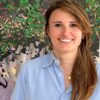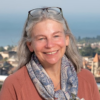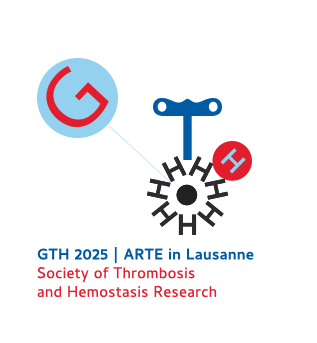The 69th Annual Meeting of the Society of Thrombosis and Haemostasis Research will take place from 18–21 February 2025. The congress will cover the latest insights in the field of Thrombosis and Haemostasis. Our congress motto “ARTE” is an Italian acronym meaning “die Kunst”. During the Congress you will have a unique opportunity to experience how Art and Medicine interact, how Creativity can impact on our daily work as researchers and caregivers, and how the Art of fostering tomorrow’s haemostaseologists can be cultivated.
Session Types
The plenary lectures by renowned invited speakers will provide updates on the main topics of the meeting and showcase some of the latest clinical and basic science.
State-of-the-art lectures by renowned scientists will provide the best available level of knowledge in the field of Thrombosis and Haemostasis at present.
Selected oral presentations on the latest findings from basic and clinical research.
Communicate visually the quintessence of your work by presenting complex information clearly and concisely. Additionally, you have the opportunity to network by discussing with peers and experts.
During workshops, young haemostaseologists will receive theoretical inputs and practical training on some professional skills. For example, in the “Communication” workshop participants will have the opportunity to receive professional individual feedback following a short video recorded presentation. In the “Leadership” workshop, the most essential qualities for a successful leadership will be discussed.
These sessions are led by recognized authorities in their fields. After a presentation about their specialised topic the experts will open the session for discussion, which will be driven by active audience participation.
Symposia will be company-organised sessions including academic presentations and roundtable discussions on the latest scientific, diagnostic, and therapeutic advances in the field of thrombosis and haemostasis.
Pipeline sessions are novel session format. Companies will highlight their latest product developments in the field of thrombosis and haemostasis during 15-minute presentations.
Plenary Lectures

Wulfram Gerstner
Artificial Intelligence:
Learning and learning rules: Human intelligence versus AI

David Lillicrap
Artificial Intelligence:
Artificial intelligence, science, and learning in the field of thrombosis and haemostasis

Mikael Krogerus and Roman Tschäppeler
Arts:
The Fine Art of Making the Right Decision – a visual and (entertaining) keynote

Camilla Forsberg
Arts:
To bleed or not to bleed: A Stem Cell Question?

Joachim Marti
Health for All:
Improving health systems to deliver what matters

Andreas Greinacher
Health for All:
Delivering Blood in Nigeria

Stephan Schiffels
Genetics:
An anthropologist’s view: The journey of our genes

Kerstin Jurk
Genetics:
Molecular mechanisms of platelet activation and signal transduction
Keynote Lectures

Michael Hengarter
Keynote Lecture Title:
Fostering the next generation of scientists

Claudia Cantoni
Keynote Lecture Title:
Arts and Science

Ester Piovesana
Keynote Lecture Title:
Arts and Science

Christine Sempoux
Opening Ceremony Lecture:
Academia / Arts & Science / Promotion of young talents
State of the Art Lectures
Jan Voorberg | How the immune system sees ADAMTS13
Paul Knöbl | Treatment of acute TTP without plasma
Marie Scully | Avoiding cognitive impairment in TTP
Katrien Devreese | How I diagnose antiphospholipid syndrome
Vittorio Pengo | How I treat antiphospholipid syndrome
Karen Schreiber | Antiphospholipid syndrome in women
Marco Roffi | Antiplatelet therapy for percutaneous coronary intervention: Does sex matter ?
Cécile Oury | Protective effect of ticagrelor against infective endocarditis
Urs Fischer | Patient tailored prevention of stroke recurrence: the role of anticoagulation
Alessandra Balduini | Production of red blood cell in vitro
Catherine Strassel | In vitro platelet production
Caterina Casari | Artificial platelets
Daniel Ricklin | Complement system – Introduction
Verena Schroeder | Crosstalk between complement and coagulation
Christoph Schmidt | Complement-mediated thromboses
Anthony K.C. Chan | The coagulation system in neonates and children: A historical overview
Werner Streif | Platelet function in neonates and children
Christoph Male | Developmental hemostasis: impact on neonatal thrombosis
Alessandra Bosch | Current DOAC indications in children
Susanne Holzhauer | Real world data on DOAC in children
Martin Olivieri | Current state of DOAC use in children with cardiac indication
Elisa Mancuso | Bleeding assessment in haemophilia
Lukas Graf | The Haemophilia Joint Health Score
Natascha Marquardt | The usefulness of joint ultrasound in haemophilia patients
Fraser Macrae | Fibrin clot structure and procoagulant states
Cristina Santoro | Low fibrinogen levels correlate to bleeding risk in fibrinogen disorders
Dino Mehic | Accelerated fibrinolysis: A tendency to bleed?
Anita Rauch | Old and new technologies in genetic analysis
Marguerite Neerman-Arbez | Genetics of fibrinogen abnormalities
Barbara Zieger | Inherited platelet disorders: From genetic anomaly to biochemical defect
Alessandro Casini | Women and hereditary bleeding disorders
Thierry Girard | Post-partal hemorrhage
Suzanne C Cannegieter | Hormone-replacement associated VTE-risk (incl. transgender)
Ton Lisman | Current concepts on the pathophysiology of coagulation in liver cirrhosis
Erica Villa | Management of anticoagulation in patients with liver cirrhosis
William Bernal | Invasive procedures in patients with impaired hemostasis due to liver cirrhosis
Ivonne Wieland | Neonatal renal venous thrombosis
Walter Ageno | Splanchnic venous thrombosis
Diana Aguiar de Sousa | Cerebral venous thrombosis
Andreas Holbro | Basic concepts on tumor immunotherapy
Antonia Müller | Coagulation and immunotherapies
Wolfram Ruf | Targeting coagulation signaling for immune reprogramming
Corinne Widmer | How to achieve cost-effective diagnostic work-up
François Mullier | How to improve appropriateness of laboratory testing in the ICU
Thomas Thiele | How can diagnostics and research be combined in an academic laboratory?
Yves Gruel | Variable antigen binding of PF4-specific HIT antibodies: pathogenic implications
Karen Vanhoorelbeke | Variable ADAMTS13 conformation state: pathogenic implications
Mathieu Fiore | Concizumab for Glanzmann Thrombasthenia
Simon De Meyer | Targeting VWF in arterial thrombosis
Edi Lindoff-Last | Ibrutinib for severe thromboembolism
Andrea Ulrike Steinbicker | Perioperative red blood cell transfusion according to age groups
Karim Brohi | Massive haemorrhage: Whole blood replacement
Wolfgang Korte | Massive haemorrhage: Component replacement
Carlo Zaninetti | Diagnostic utility of platelet morphology
Nichola Cooper | Immunity
Jon Gibbins | The personalisation of platelet therapies
Marie-Christine Alessi | Hereditary platelet disorders and genetic diagnostic challenges
Paolo Gresele | Investigation of bleeding disorders: when should we test platelet function?
Pierre Magnin | Artificial models for studying platelet function under flow conditions
Lars Asmis | Laboratory investigations in very elderly patients with coagulation problems (bleeding and thrombosis)
Cihan Ay | How I treat bleeding in the very elderly
Sophie Testa | Oral anticoagulation in very elderly patients
Alessandro Aliotta | Signaling mechanisms
Claudia Tersteeg | Mitochondrial function modulation
Mikhail Panteleev | In silico modelling
Cecilia Becattini | How to identify the right candidate for extended anticoagulation
Jonathan Douxfils | Anticoagulation in Trousseau syndrome
Emmanuelle Scala | Antithrombotic treatment in patients with cardiac assist device
Debora Bertaggia Calderara | Global coagulation assays: Technical features and insights
Yesim Dargaud | Clinical applications in bleeding and thrombotic disorders
Florian Langer | Thrombophilia, thrombosis and thromboprophylaxis in pregnancy: For what and in whom?
Heleen van Ommen | Thromboprophylaxis in children: Navigating uncharted waters
Mattia Rizzi | Thromboprophylaxis in children with cancer
Maria Brehm | Assembly of VWF and FVIII
Giancarlo Castaman | Concenption, pregnancy and delivery in women with abnormal von Willebrand Factor
Eugenia Biguzzi | How to perform a DDAVP test and what to expect from it

